Environmental Engineering Events in United States

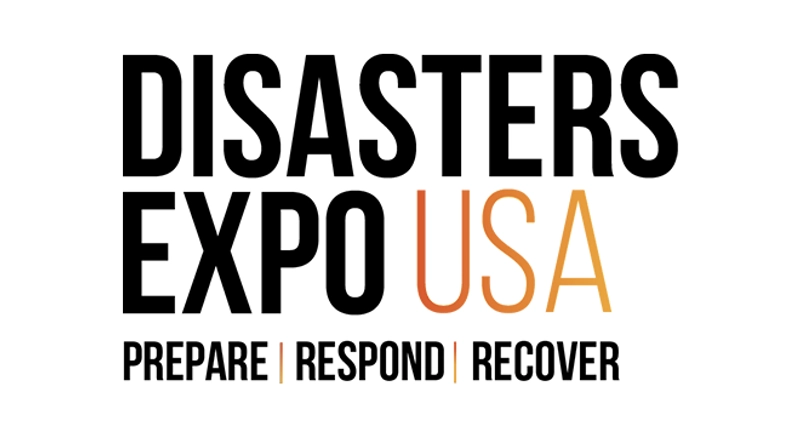
Natural Disasters Expo California
The Natural Disasters Expo California: Where Preparedness Meets Innovation
In an era of increasing environmental unpredictability, the Natural Disasters Expo California has established itself as a vital meeting point for those who protect communities, manage crises, and build resilience in the face of nature’s most formidable forces. Hosted in Los Angeles, this global event also recognized as Disasters Expo USA brings together the brightest minds and latest technologies in disaster management, prevention, and recovery.
At its core, the expo is more than a trade show; it's a call to action. With a clear focus on heat & fire, earthquake, storm, and flood threats, the event creates a cross-sector platform where professionals from public agencies, private companies, and non-profit organizations gather to exchange ideas, form partnerships, and accelerate innovation in disaster resilience.
A Central Hub for Disaster Management Professionals
Every year, the expo welcomes an impressive array of stakeholders in the disaster preparedness and emergency response industries. From federal agencies to volunteer responders, from infrastructure engineers to climate scientists the diversity of expertise is as vast as the disasters they prepare for.
Attendees Include:
Emergency response coordinators
Government officials and FEMA representatives
Firefighters, police, and rescue services
Climate and geoscience researchers
NGOs and humanitarian aid organizations
Technology developers and system integrators
Construction and infrastructure firms
Community planners and city officials
This melting pot of experience enables attendees to collaborate across disciplines, learn from real-world scenarios, and explore how technology and policy can combine to save lives.
Four Core Focus Areas: A Holistic Approach to Preparedness
Unlike other niche events, the Natural Disasters Expo California is structured to address the full spectrum of natural disaster threats. Its four dedicated zones allow attendees to deep-dive into specific challenges while understanding how they interconnect within broader emergency response frameworks.
The Four Zones:
Heat & Fire – With wildfires becoming more frequent and devastating, this area highlights early-warning systems, fire-retardant materials, evacuation planning tools, and smart monitoring solutions.
Earthquake – Featuring innovations in structural engineering, seismic detection, early warning systems, and post-quake recovery techniques.
Storm – From hurricanes to tornados, this zone covers real-time weather analytics, storm shelters, drone mapping, and emergency communications.
Flood – As sea levels rise and extreme weather increases, this area showcases solutions for water management, flood barriers, urban planning, and drainage technology.
Each zone is supported by live demonstrations, technical presentations, and panel discussions that bring theory to life and allow for real-time learning and networking.
Technology, Innovation, and Resilience on Display
One of the major draws of Disasters Expo USA is its showcase of groundbreaking technologies that are reshaping how the world responds to crisis. In a space filled with drones, sensors, software platforms, and real-world rescue equipment, visitors don’t just see ideas they experience solutions.
Technologies Exhibited Include:
AI-powered predictive analytics for early warnings
GIS mapping tools for evacuation planning
Structural reinforcement and retrofitting technologies
Satellite communication systems for post-disaster coordination
Emergency shelters and mobile medical units
Flood modeling and water diversion systems
These innovations reflect a critical shift from reactive to proactive disaster management an approach that saves both lives and infrastructure.
Education and Training: A Key Component of the Expo
While the exhibit floor is dynamic and engaging, the educational opportunities at the Natural Disasters Expo are what many professionals value most. With dozens of seminars, interactive panels, and case study sessions, the event provides valuable continuing education for attendees across sectors.
Topics Covered in Seminars Include:
Urban resilience strategies for climate adaptation
Public-private collaboration during large-scale disasters
Real-time crisis communication and media strategies
Community engagement and local preparedness
Innovations in first-responder equipment and protocols
The speakers include leading experts, including emergency directors, city planners, tech founders, and even survivors who share deeply personal stories about recovery and rebuilding.
Why the Natural Disasters Expo Matters More Than Ever
In recent years, the global frequency and intensity of natural disasters has increased. Wildfires, floods, earthquakes, and hurricanes are becoming more extreme, putting millions of lives and billions of dollars in infrastructure at risk. Events like Disasters Expo USA are essential not just for showcasing products, but for fostering the collaboration needed to protect communities.
The expo serves as a critical knowledge exchange platform, where innovation is not confined to technology, but extends to strategy, empathy, and preparedness. It’s where military-grade drone developers talk to city mayors. Where nonprofit coordinators meet AI engineers. Where lessons from the past inform solutions for the future.
Who Should Attend the Next Edition?
If your work involves public safety, construction, infrastructure, risk assessment, humanitarian aid, or environmental science, the Natural Disasters Expo is designed for you.
Top Reasons to Attend:
Access cutting-edge disaster tech and emergency systems
Learn from field-tested strategies and case studies
Network with decision-makers from across sectors
Discover solutions to specific regional and national threats
Train and prepare your teams through hands-on workshops
Whether you're managing a coastal city, leading a wildfire response team, or building resilient infrastructure, this event offers practical value and essential contacts.
A Shared Commitment to Resilience
The future is uncertain, but the Natural Disasters Expo California is helping shape a more resilient one. By creating a collaborative environment that transcends sectors and ideologies, the event shows that preparedness is not just a local issue it’s a global responsibility.
From saving lives to protecting livelihoods, the insights gained and connections made at Disasters Expo USA ripple far beyond the exhibition halls of Los Angeles.

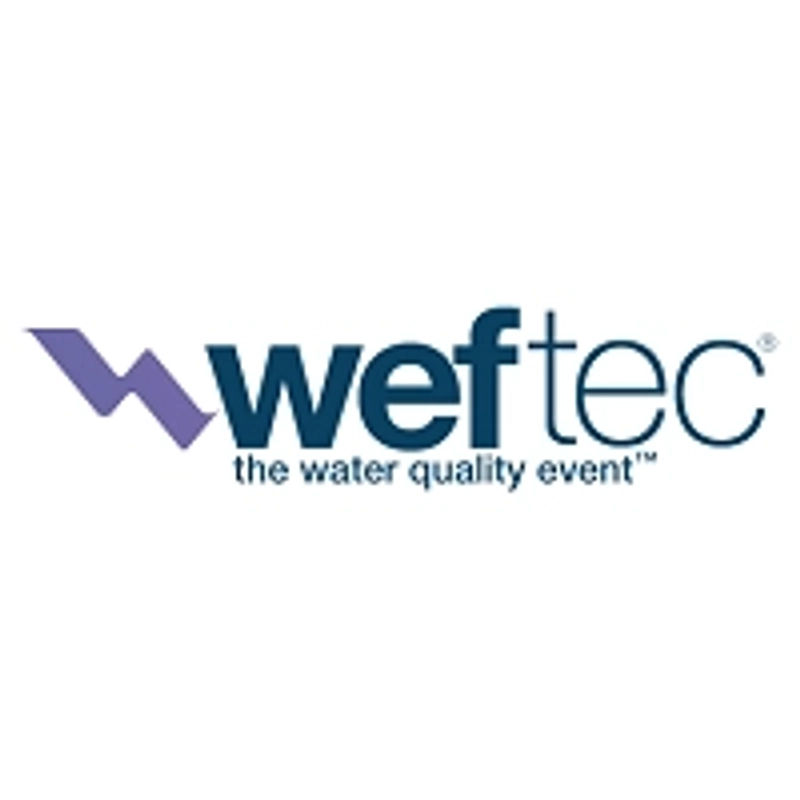
WEFTEC
The WEFTEC, known as the Water Environment Federation’s Technical Exhibition and Conference, is widely regarded as the most influential event for water quality and water management in the United States. From its opening hours, WEFTEC sets a serious and professional tone, reflecting the critical role water plays in public health, environmental protection, and economic stability. Held biennially and organized by the Water Environment Federation, the event functions as a central meeting point where innovation, experience, and responsibility come together.
Taking place at the Ernest N. Morial Convention Center in New Orleans, WEFTEC benefits from a location that is closely connected to water-related challenges and solutions. The city itself symbolizes the importance of resilient water infrastructure, making the setting especially meaningful. Thousands of professionals gather here to exchange ideas, explore technologies, and discuss how the water sector must evolve in response to climate change, urban growth, and increasing demands on water systems.
A comprehensive forum for the water industry
WEFTEC brings together a broad professional community involved in drinking water, wastewater treatment, water reuse, and resource recovery. Engineers, operators, researchers, utility managers, and technology providers all contribute to the event’s dynamic atmosphere. What unites them is a shared understanding that water quality is not just a technical issue, but a societal responsibility.
The event goes far beyond a traditional exhibition. It functions as a learning environment where participants can explore best practices, regulatory developments, and future-oriented strategies. Discussions often address long-term challenges such as aging infrastructure, energy efficiency, digital transformation, and sustainable water reuse. This makes WEFTEC particularly valuable for professionals who need to balance innovation with reliability and compliance.
Specialized pavilions highlighting key technologies
One of the defining features of WEFTEC is its pavilion structure, which allows visitors to focus on specific areas of interest while still understanding the bigger picture of the water cycle. Each pavilion reflects a critical direction in the modern water sector and encourages hands-on exploration and dialogue.
Among the most important focus areas are:
the Drinking Water Pavilion, emphasizing drinking water treatment and water reuse
the Drone Pavilion, dedicated to inspection, monitoring, and data collection technologies
the Innovation Pavilion, presenting pioneering products and start-ups
the Smart Water and Cybersecurity Pavilion, addressing digital protection and automation
the Rainwater Pavilion, highlighting green infrastructure and rainwater management
These spaces allow visitors to see how traditional water treatment is increasingly supported by digital tools, automation, and data-driven decision-making. At the same time, nature-based solutions and sustainable approaches receive strong attention, reflecting a shift toward more resilient water systems.
Technologies shaping the future of water management
Across the exhibition floor, WEFTEC showcases technologies that support the full lifecycle of water, from collection and treatment to reuse and safe discharge. The emphasis is not only on performance, but also on reliability, security, and environmental impact.
Key technological directions presented at the event include:
treatment and disposal solutions for reused water, including wastewater and rainwater
control devices and automation systems for water facilities
digital monitoring, network protection, and cybersecurity solutions
data-driven inspection tools, including drone-based technologies
green infrastructure and sustainable rainwater control measures
These innovations reflect the growing complexity of water systems and the need for integrated solutions that combine engineering, software, and environmental science.
Recognition, competition, and professional pride
Beyond exhibitions and presentations, WEFTEC is known for celebrating excellence within the water sector. The event hosts awards recognizing innovative products that contribute to safer, more efficient, and more sustainable water management. These awards highlight not only technological achievement, but also the commitment of companies and teams to continuous improvement.
A particularly well-known feature of WEFTEC is the Operations Challenge. This demanding skills competition brings together teams from water resource recovery facilities who compete in realistic operational scenarios. The challenge emphasizes teamwork, technical expertise, and problem-solving under pressure. For many participants, it is both a test of professional skill and a source of pride, reinforcing the human side of the water industry.
Who attends WEFTEC and why it matters
The event attracts a wide and diverse audience, united by a common goal of improving water systems. Typical participants include:
water and wastewater utility professionals
engineers and technology developers
environmental consultants and researchers
facility operators and maintenance specialists
public sector decision-makers and regulators
Visitors attend WEFTEC to stay informed about trends, learn from peers, and discover solutions that can be applied in real-world conditions. The scale of the event ensures that both established companies and emerging innovators can find their audience.
New Orleans as a powerful host location
The Ernest N. Morial Convention Center provides an impressive and well-equipped venue capable of hosting an event of WEFTEC’s size and complexity. Its modern facilities support large exhibitions, technical sessions, and networking activities without sacrificing comfort or organization.
New Orleans itself adds symbolic value. As a city shaped by water, flood management, and resilience planning, it offers a living context for many of the discussions held at WEFTEC. This connection between place and purpose deepens the relevance of the event for participants.
In summary, WEFTEC is far more than a trade fair or conference. It is a cornerstone event for the American water sector, combining innovation, education, competition, and collaboration. By bringing together technology and human expertise, WEFTEC helps shape a future where water systems are safer, smarter, and more sustainable for generations to come.


International Water Conference
A Meeting of Minds: The Spirit of the International Water Conference
The International Water Conference (IWC) stands as a respected gathering place where science, engineering, and practical knowledge converge. Each year, this globally recognized event brings together a diverse group of professionals end-users, researchers, engineers, and suppliers all united by a shared commitment to advancing water treatment technologies. What sets the IWC apart is its ability to bridge the gap between scientific theory and industrial application.
In a world increasingly challenged by water scarcity and environmental regulations, the IWC serves a vital purpose: facilitating open, unbiased dialogue on the latest technological breakthroughs and industrial strategies. Attendees come not only to learn but also to challenge existing ideas and foster long-term innovation.
The Heart of Innovation in Water Treatment
Held annually, the IWC is more than a typical conference it is a platform for technological and intellectual exchange. Its value lies in the diversity of its audience. From practicing engineers in heavy industry to scientists conducting lab-based water quality tests, the range of perspectives ensures the discussions are comprehensive and forward-thinking.
The conference focuses not just on presenting the latest scientific findings, but also on translating those insights into usable, real-world solutions. That is why many industries from chemical manufacturing to power generation send representatives to participate. The event highlights how water is not merely a resource to manage, but a system to optimize.
Key themes often include:
Innovations in water treatment technologies
Reuse and recycling in industrial settings
Chemical treatment and conditioning
Membrane filtration and separation processes
Wastewater minimization and environmental compliance
By addressing both niche and broad challenges in water management, the IWC proves its relevance across multiple sectors.
A Technological Crossroads: Where Science Meets Industry
Unlike commercial trade shows, the International Water Conference is known for its technical depth and unbiased presentation. One of its defining characteristics is the way it blends theoretical research with practical case studies, offering attendees a comprehensive view of water treatment advancements.
What attendees can expect:
Peer-reviewed technical papers: These provide insight into new technologies, pilot studies, and implementation strategies.
Real-world applications: Presenters frequently share the success and limitations of technologies applied in working facilities.
Interactive Q&A sessions: Open discussions encourage knowledge exchange and the challenging of assumptions.
Technology-neutral presentations: The IWC takes pride in its vendor-neutral approach, ensuring attendees receive information that is balanced and credible.
This technical rigor and objectivity make the conference particularly attractive to engineers, plant managers, and technical consultants who value substance over salesmanship.
Diverse Voices, Shared Purpose
One of the most unique qualities of the IWC is the diversity of its attendees not just in profession, but in perspective. By design, the conference brings together stakeholders from across the entire water treatment ecosystem. This rich cross-section fosters meaningful dialogue and helps break down silos that can hinder innovation.
Participants include:
End-Users – Plant operators, facility engineers, and utility managers seeking new tools to improve system performance.
Researchers – Academics and scientists contributing novel insights and validation data.
Engineers – Designers and consultants applying theory to complex, large-scale systems.
Suppliers – Equipment manufacturers and solution providers presenting cutting-edge technologies.
Policy Makers and Educators – Professionals who influence standards, training, and long-term planning.
Such a multidisciplinary forum ensures that every stakeholder in water treatment has a seat at the table and a voice in shaping the future.
Why the IWC Matters Now More Than Ever
As global industries strive to meet sustainability goals, the role of water management has never been more critical. The International Water Conference provides the tools and connections necessary to meet these challenges head-on. Whether it's increasing operational efficiency, complying with tightening environmental standards, or implementing circular water use practices, the conference addresses the most urgent needs in the field.
Beyond technical knowledge, the IWC fosters a sense of community and shared responsibility. The water challenges faced by industries are increasingly complex, involving everything from geopolitics to climate change. The solutions, therefore, require cooperation that transcends company lines and national borders.
Practical Knowledge with a Long-Term Impact
The International Water Conference is particularly valuable because it delivers knowledge that can be applied immediately. While some conferences may prioritize theory, IWC emphasizes utility. Presentations are often built around lessons learned and real-world outcomes, making them highly relevant to working professionals.
Attendees often cite these benefits:
Gaining exposure to new treatment methods and materials
Learning from successful (and unsuccessful) case studies
Understanding regulatory shifts and their implications
Exploring cross-industry strategies for water reuse
Connecting with industry mentors and collaborators
This practical focus ensures that the knowledge gained during the event doesn’t stay in the conference hall it follows participants back to their operations, their research labs, and their policy meetings.
The Future of Water is a Collective Effort
In an era of heightened environmental consciousness and resource limitations, the value of technical forums like the International Water Conference cannot be overstated. It stands not just as a calendar event, but as a cornerstone of progress in the field of water treatment and reuse. Through its blend of science, engineering, and open discourse, the IWC continues to play a pivotal role in shaping a more sustainable and efficient future.
Water may be a basic element, but the challenges and opportunities it presents are anything but simple. By bringing together a wide range of voices and providing a space for grounded, unbiased technical exchange, the IWC ensures that the journey toward better water practices is both informed and inclusive.

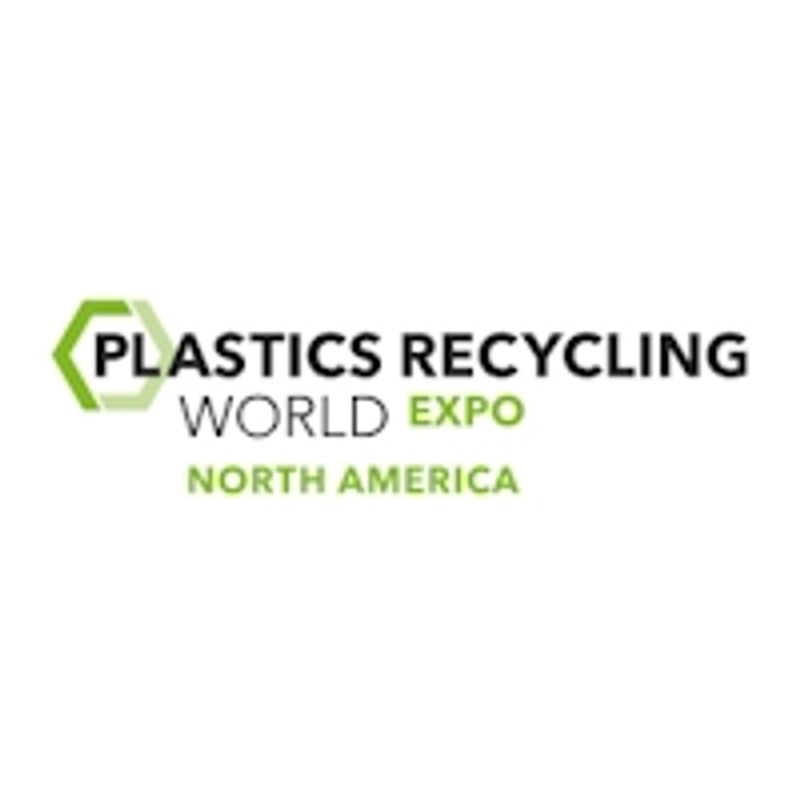
Plastics Recycling World Expo
Plastics Recycling World Expo North America: Where Innovation Meets Circular Thinking
In an era defined by sustainability and resource efficiency, the Plastics Recycling World Expo North America has emerged as a must-attend event for professionals across the recycling and plastics processing industries. Held annually at the Huntington Convention Center of Cleveland, this expo offers a focused platform for discovering cutting-edge recycling technologies, engaging with top-tier suppliers, and absorbing fresh insights into the future of plastics reuse.
Organized by Applied Market Information LLC (AMI), a globally recognized leader in plastics industry events, the show connects a wide spectrum of stakeholders from engineers and designers to material scientists and industry decision-makers within a space designed to foster collaboration, learning, and progress. It’s not just a trade show; it’s a concentrated ecosystem of innovation.
A Comprehensive Showcase of Recycling Excellence
What makes the Plastics Recycling World Expo stand out is its exclusive focus on advanced plastics recycling solutions. The expo is co-located with related events Compounding World Expo, Plastics Extrusion World Expo, and Polymer Testing World Expo creating a comprehensive environment for exploring cross-industry synergies and shared technologies.
Throughout the exhibition floor, attendees encounter:
Next-generation recycling machinery optimized for efficiency and material purity
Innovative recycled polymers and compounds suitable for high-performance applications
Sustainable packaging solutions utilizing post-consumer resins
Environmental services and software tailored for regulatory compliance and traceability
This tightly curated selection ensures that every product, technology, and service on display is relevant to the modern demands of circular plastics manufacturing.
Technical Presentations That Offer Real-World Impact
Running parallel to the expo is a series of free technical presentations and seminars, led by industry veterans, researchers, and innovators. These sessions provide practical insights into current challenges, best practices, and game-changing breakthroughs.
Key themes often explored include:
Design for recyclability and how manufacturers are adapting product lines
Chemical and mechanical recycling technologies and where they intersect
Market dynamics influencing recycled material pricing and supply chains
Legislative trends shaping the future of plastic waste management
Consumer expectations and the shift toward transparency in material sourcing
Each session is designed not just to inform, but to spark meaningful conversations among professionals who are actively shaping the industry’s future.
Who Attends: A Snapshot of the Industry’s Movers and Makers
The Plastics Recycling World Expo North America is known for drawing a diverse audience of highly engaged professionals. Attendees represent virtually every segment of the plastics recycling supply chain from the producers of raw recycled materials to the designers of consumer products who specify them.
Typical participants include:
Equipment manufacturers and system integrators
Plastics processors and compounders
Raw material suppliers and additives developers
OEMs and packaging designers
Environmental consultants and compliance officers
This diversity enriches the event’s atmosphere, encouraging cross-sector dialogue that goes far beyond standard business networking.
Why Cleveland? The Perfect Backdrop for Industrial Innovation
Set in the heart of downtown, the Huntington Convention Center of Cleveland is more than just a venue it’s a symbol of the city’s growing relevance in the global plastics and recycling conversation. With its modern infrastructure, central location, and hospitality-friendly design, Cleveland offers the perfect setting for an event of this caliber.
Moreover, the city's industrial legacy and revitalization efforts make it an inspiring backdrop for conversations about the future of sustainable manufacturing and materials recovery.
What Sets This Event Apart in the Recycling Landscape
In an increasingly crowded calendar of sustainability events, the Plastics Recycling World Expo offers a targeted, high-value experience. It focuses entirely on the technical and commercial realities of plastics recycling providing attendees with tangible solutions, not just abstract ideas.
Here’s what sets it apart:
No-cost access to expert-led technical programs
Co-location with related events for a broader industry view
A business-friendly environment where deals are made and strategies are shaped
Real-time exposure to innovation pipelines in materials and machinery
If you work in or around plastics recycling, this is the event where theory becomes practice, and where introductions become long-term partnerships.
A Future-Focused Expo With Real-World Impact
The Plastics Recycling World Expo North America is more than a gathering of machines and materials it’s a living demonstration of the industry’s commitment to closing the loop. By showcasing practical technologies, fostering meaningful dialogue, and driving collaborative solutions, the expo plays a central role in pushing the recycling sector forward.
For professionals seeking to stay competitive, informed, and connected in this rapidly evolving field, this event is not just relevant it’s essential.

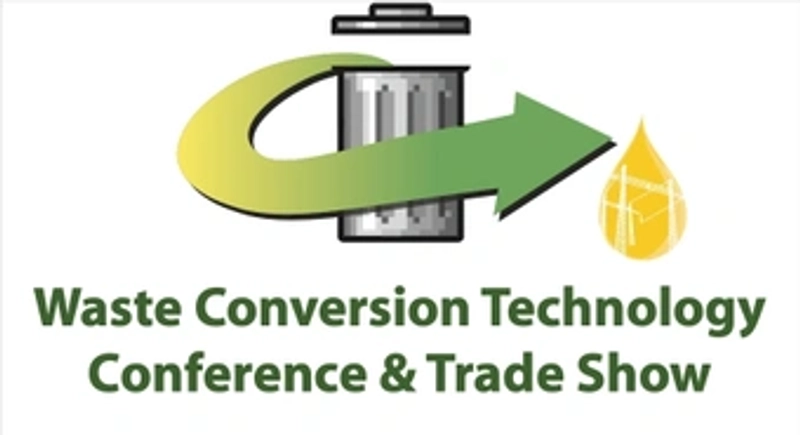
Waste Conversion Technology Conference And Trade Show
Waste Conversion Technology Conference and Trade Show: Driving the Future of Sustainable Waste Management
The Waste Conversion Technology Conference and Trade Show (WCTC) stands as the largest and oldest gathering of its kind, drawing together professionals from across the waste, energy, environmental, and technology sectors. At a time when sustainability and circular economy practices are more vital than ever, this annual event serves as a critical hub for discussing the transformation of waste into alternative energy and other valuable resources.
Held annually, WCTC attracts an audience of scientists, engineers, entrepreneurs, policymakers, and investors—all driven by a shared mission: to harness innovative technologies and turn environmental challenges into opportunities. With a powerful lineup of workshops, case study sessions, and an expansive trade show floor, the event has earned its reputation as a must-attend for anyone involved in waste-to-energy and resource recovery sectors.
Discovering the Future of Waste-to-Energy Technologies
One of the most compelling aspects of WCTC is its deep dive into cutting-edge waste conversion technologies. As the global community pushes to reduce landfill dependency and meet climate targets, technological advancement in waste management is no longer optional—it’s essential.
Attendees of the conference can explore a broad array of innovative solutions that are reshaping how waste is processed and repurposed. These technologies not only reduce environmental impact but also provide viable economic models for monetizing waste streams.
Core technologies featured at WCTC include:
Pyrolysis and gasification for transforming waste into synthetic fuels and electricity
Anaerobic digestion and biofuels from agricultural and food waste
Plasma arc technologies for high-temperature waste treatment
Mechanical-biological treatment (MBT) systems for complex municipal waste streams
Chemical recycling methods for plastic and textile waste
These systems are not just theoretical—they are operational, and many sessions include real-world performance data and investment figures. For professionals looking to stay ahead of the curve, the hands-on demonstrations and detailed technology showcases offer a rare opportunity to engage with the next generation of waste solutions.
Building Meaningful Partnerships and Funding Opportunities
Beyond the technology, WCTC serves as a vital networking platform. From casual meetups over coffee to curated business matchmaking sessions, the event fosters strategic collaborations that help get projects off the ground and into production. In an industry where capital, permits, and policy often dictate feasibility, having the right connections is half the battle.
Strategic networking at WCTC enables attendees to connect with:
Project developers seeking technology providers or joint venture partners
Municipal and government agencies interested in sustainable infrastructure
Private investors and venture capitalists focused on clean technologies
Technology innovators offering pilot-ready and commercial systems
Policy experts and regulatory bodies who influence the permitting process
These relationships often translate into long-term collaborations. Many successful projects across North America and Europe trace their origins back to initial connections made at WCTC. The event provides a unique combination of technical depth and business accessibility, making it the ideal forum for moving from idea to implementation.
Learning From the Experts: Insights Across Sectors
One of the standout features of the Waste Conversion Technology Conference and Trade Show is the access to seasoned industry experts who openly share their experiences, challenges, and lessons learned. Whether the focus is on regulatory navigation, process optimization, or risk management, the knowledge exchange is practical and relevant.
The conference features dozens of sessions covering a broad spectrum of waste conversion topics, often organized by sector or process type. Attendees benefit from a range of voices—from municipal waste managers to agricultural bioenergy entrepreneurs.
Highlights from previous expert sessions include:
Case studies of waste-to-energy facilities in both urban and rural settings
Analysis of permitting hurdles and how to navigate environmental compliance
Strategies for feedstock aggregation and contamination management
ROI breakdowns for anaerobic digestion and thermal treatment systems
Policy roundtables discussing incentives, tax credits, and carbon pricing
These sessions go beyond theory, focusing on what works (and what doesn’t) in real-world conditions. Participants walk away with actionable strategies and frameworks that can be directly applied to their own operations or projects.
A Comprehensive Platform for Circular Economy Solutions
The broader context of WCTC is the global shift toward a circular economy, where materials are reused, energy is recovered, and waste is minimized. This theme is woven throughout the conference, encouraging participants to think beyond disposal and explore holistic resource recovery.
Circular economy innovations explored at the event include:
Nutrient recovery from organic waste for use in agriculture
Reuse of ash and byproducts in construction materials
Conversion of landfill gas into vehicle-grade RNG (renewable natural gas)
Integration of IoT and AI to optimize collection and processing systems
Community-scale zero-waste infrastructure designs
By addressing the entire value chain—from waste generation to product reuse—WCTC promotes a system-wide approach to sustainability. It challenges attendees to reframe their perspective: from seeing waste as a liability to recognizing it as a powerful, untapped asset.
Who Should Attend the Waste Conversion Technology Conference?
WCTC attracts a diverse mix of participants from various sectors. Whether you're a seasoned waste professional or a newcomer exploring your first project, the conference offers tailored insights and valuable connections.
Ideal attendees include:
Municipal waste planners and public works officials
Environmental engineers and sustainability consultants
Technology providers and equipment manufacturers
Investors and financial institutions focused on clean energy
Researchers and academic institutions developing new waste science
Each attendee benefits from the multi-disciplinary nature of the event, as it combines technical content with business strategy, regulatory analysis, and project financing.
Turning Waste Into Opportunity at WCTC
In an era defined by environmental urgency and technological transformation, the Waste Conversion Technology Conference and Trade Show serves as both a beacon and a blueprint. It empowers attendees to discover cutting-edge technologies, forge strategic partnerships, and learn from industry leaders who are redefining what’s possible in waste management and renewable energy.
WCTC goes far beyond the traditional trade show format. It’s a high-impact, content-rich environment where ideas turn into action, and problems meet practical solutions. If your work intersects with waste, energy, or sustainability in any form, attending WCTC is not just beneficial—it’s essential.

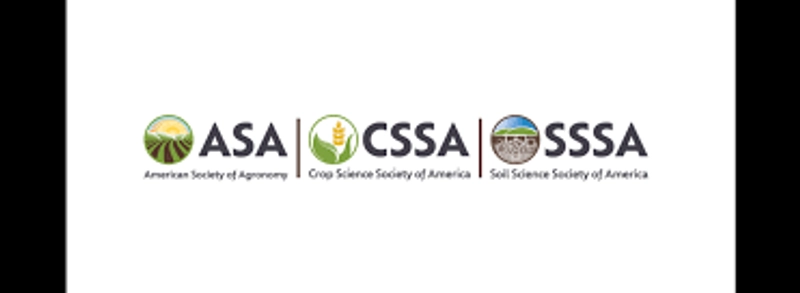
ASA-CSSA-SSSA MEETING
The ASA, CSSA, SSSA International Annual Meeting is a pivotal event aimed at inspiring change in agronomy, crop, and soil sciences to foster scientific advancement. As the world grapples with the rapidly changing climate, which poses significant challenges to modern agriculture, this gathering offers a beacon of hope. By leveraging cutting-edge technologies such as advanced modeling tools, remote sensing, machine vision, autonomous machinery, and robotics, the meeting emphasizes how artificial intelligence can enhance soil management, promote climate-smart farming practices, and facilitate accurate forest mapping.
Hosted jointly by the American Society of Agronomy, the Crop Science Society of America, and the Soil Science Society of America, this premier event serves as a melting pot for ideas, solutions, and innovations within the environmental sciences field. The Annual Meeting strikes a perfect balance between scientific inquiry, networking opportunities, and collaboration, creating an atmosphere rich with camaraderie. It welcomes emerging learners and established leaders from various sectors, including industry, government, and academia, all eager to explore the latest advancements in agronomic, crop, and soil sciences.
With thousands of educational presentations available, attendees can delve into a wealth of solutions that may be just one session, one conversation, or one new acquaintance away. The diverse programming encourages participants to think critically about the challenges they face in their daily work and to discover innovative strategies to address them. By engaging with experts and peers, attendees not only gain invaluable knowledge but also develop the tools to educate others, amplifying the impact of what they learn.
As participants leave the Annual Meeting, they carry with them fresh insights and actionable strategies, ready to implement changes that can lead to more sustainable and productive agricultural practices. The event encapsulates the spirit of collective effort in tackling the pressing issues of our time, reinforcing the belief that through collaboration and innovation, the future of agriculture can be transformed for the better.